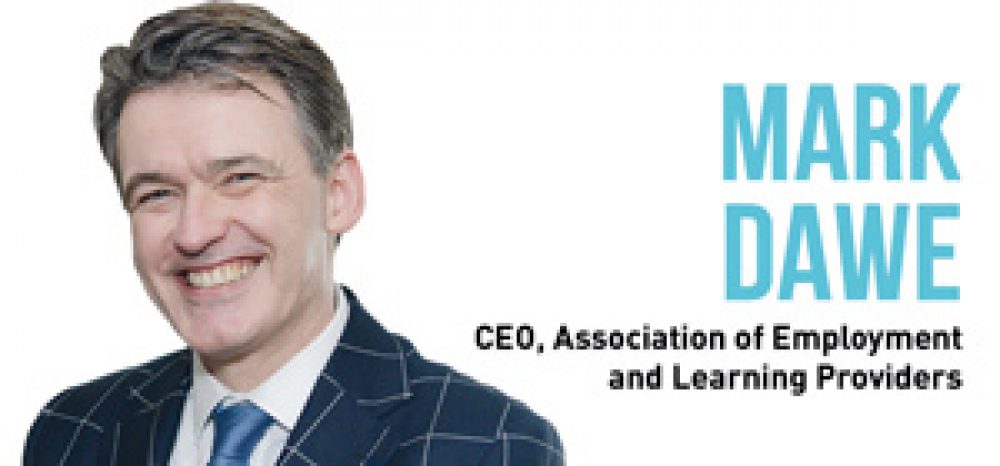This year’s adult education budget has been a debacle, according to Mark Dawe, who wants the whole process substantially rethought and redesigned to avoid underspending on one hand and underfunding on the other
There’s no denying that the recent tender process for the independent training providers’ £110 million share of the £1.5 billion adult education budget was a bad experience for everyone involved. Frustrations were made worse because over 90 per cent of the total budget was inaccessible to ITPs as it’s grant funded, while there are persistent reports that almost £300 million of it wasn’t even spent in 2016-17. What we needed instead was a tender that achieved fair outcomes, led to a value-for-money delivery, and met policy requirements.
The outcome of original procurement achieved very little of this. The way regional priorities were determined seemed broken, while providers with ‘outstanding’ provision which had met the government’s standards for years suddenly found themselves with a fraction of what they required.
Who know whether it was AELP lobbying or FE Week’s coverage of the Learndirect and Somerset County Council cases, the threat of a microscopic examination of events by the Commons Public Accounts Committee, or all three, that prompted the U-turn. The first two certainly exposed the flaws in the process and the DfE’s ability to change rules at will. Ministers must have finally seen sense over the unfairness of it all.
AELP is awaiting feedback from member-providers but reallocating 75 per cent of supposedly “non-priority” delivery through extended contracts to make it fair for successful bidders was absolutely the right and necessary thing to do, and something we had proposed as a solution many weeks ago.
The next step is to allow providers who have been delivering priority learning to bid for growth, to enable them to plan ahead and maintain capacity. As always, this will only be successful if adequate money is allocated for this growth. Bearing in mind with the size of the reported underspend, adult contracted delivery could treble and there would still be money left over.
We should now take the opportunity to review the whole future of AEB funding, in the context of the extended devolution timetable. AELP understands that elected mayors will not countenance this as an academic exercise with the ESFA effectively retaining control; they will want a budget allocated under them to meet their local economic priorities. There will be a great deal of pressure on them to keep the bulk of their funds grant-allocated, even if the AEB is underspent to a significant degree.
It may require a transition process but we would like to see all combined authorities and LEPs move over to commissioned funding. That may mean more work for bid-writers but that is far better if it means better outcomes and improved value for money. Moreover if the education select committee is about to examine the prevalence of subcontracting in the sector, we should hardly be taking decisions that will encourage continuing a practice with an abundance of top-slicing.
The Department for Education has recently indicated that funding for traineeships for 19- to 24-year-olds will no longer be part of a devolved AEB. Having sat through several fringe meetings at the main party conferences listening to a wide range of experts complain about the previous lack of local ring-fencing for SEND budgets for schoolchildren, I have to say that AELP is in full agreement with the decision.
It doesn’t matter if we are talking about areas with notional full employment; we believe that traineeships are needed nationally when half a million young people are still unemployed and many of them won’t have the skills to compete in a post-Brexit labour market. Greater investment is required in traineeships and at the same time their budget needs to be protected from raids for other things.
Mark Dawe is chief executive of the Association of Employment and Learning Providers








Your thoughts